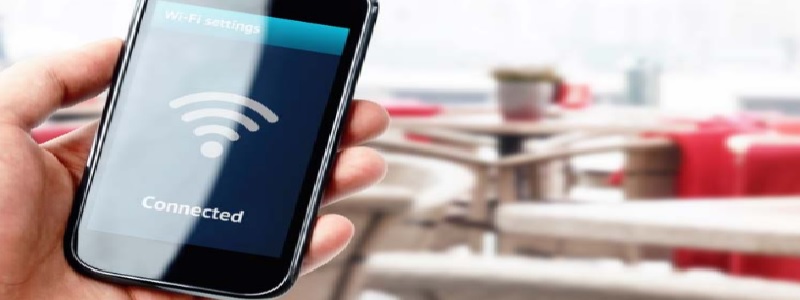
Public Wi-Fi is one of the most convenient ways of accessing the internet while hanging out in any dining outlets, coffee shops or any popular streets. However, a public WiFi has certain drawbacks as it makes your digital life vulnerable to hackers, who may steal your valuable information if you are not careful enough.
Here Are Some Effective WiFi Security Tips:
- Verify if the available WiFi connection is genuine as many fake WiFi connections are floated by hackers which may be similar to original WiFi networks. It is advisable to contact the owner/manager of the venue for verification prior connecting to any such access points.
- While using a public WiFi, prefer logging in or sending sensitive information via websites you know are fully encrypted. Do not browse any untrusted site.
- Use a Virtual Private Network (VPN) as all your data which passes through that network is via a private tunnel. There are many VPN service providers who offer this facility. VPN options are nowadays available for mobiles, so check those.

- A wise way to remain protected is installing plugins and browser add-ons. Some free Firefox add-ons are HTTPS and Force-TLS. Websites browsed on Firefox having these add-ons become secured due to data encryption.

- While using a public WiFi, prefer logging in or sending sensitive information via websites you know are fully encrypted. Do not browse any untrusted site.
- A preventive step is to change the WiFi settings of your mobile device so that it automatically does not connect to any available WiFi, which may be a trap.

6. Make sure your system or device has best virus protection that adds a strong additional layer of protection from hackers. In case your mobile device or system gets compromised when connecting to an unsecured network, a security software can send alert and save you from a cyber attack.
7. Use Two-Factor Authentication for your online accounts. Two factor Authentication requires a special code/OTP sent to mobile device to be entered besides the password. This is useful when even if someone gets your password, they will not be able to log into your account.
8. Avoid performing sensitive tasks such as paying bills, accessing net-banking accounts, using credit/debit cards, etc. when connected to an open WiFi.
9. Ensure that your system’s built-in firewall is active as it is one of the initial lines of defense against cyber attacks.
10. Make sure that you turn-off the WiFi connection once you’re done with the work. Unnecessarily staying on an open WiFi connection increases your risk of getting exposed to hackers.
11. It is important to ensure the security of browser that you are using to browse the internet. Modify your browser’s privacy settings and download its latest version to stay assured that it is up-to-date.
Apart from the mentioned steps, you can adopt certain simple measures like using different passwords for different accounts, logging off immediately after using your account. Browsers usually alert users when they click on phishing links, so as a smart internet user, you must pay heed to these warnings.
Note- This post is updated with latest information.
- RaaS : The Dark Side of SaaS
- Hackers Target MOVEit Transfer’s Zero-Day Vulnerability, Emergency Patch Deployed
- How Scammers Are Utilizing ChatGPT? Few Tips To Be Safe
- World Backup Day: Why Data Backups are Important in Cybersecurity
- What is Social Engineering and How Cyber Criminals Use It
- Things To Know About Personally Identifiable Information (PII)
- What is Data Breach? Why and How It occurs? How To Prevent Data Breach


